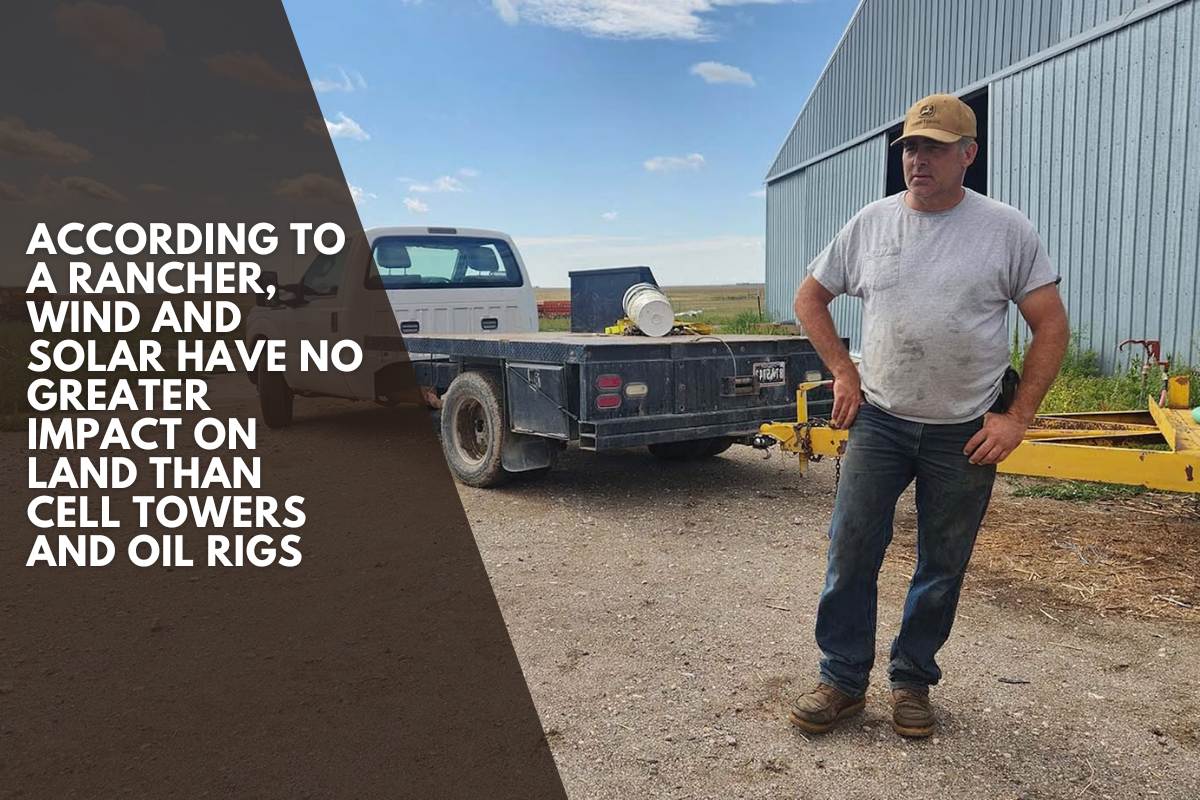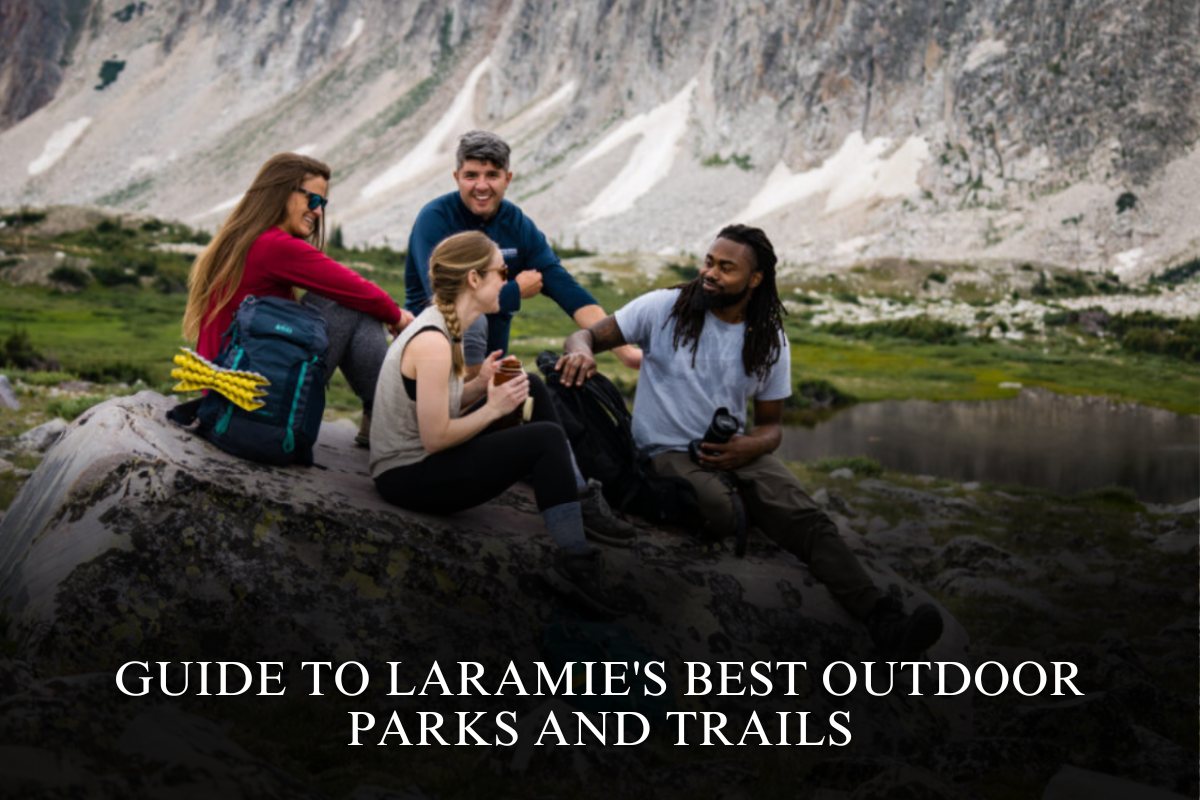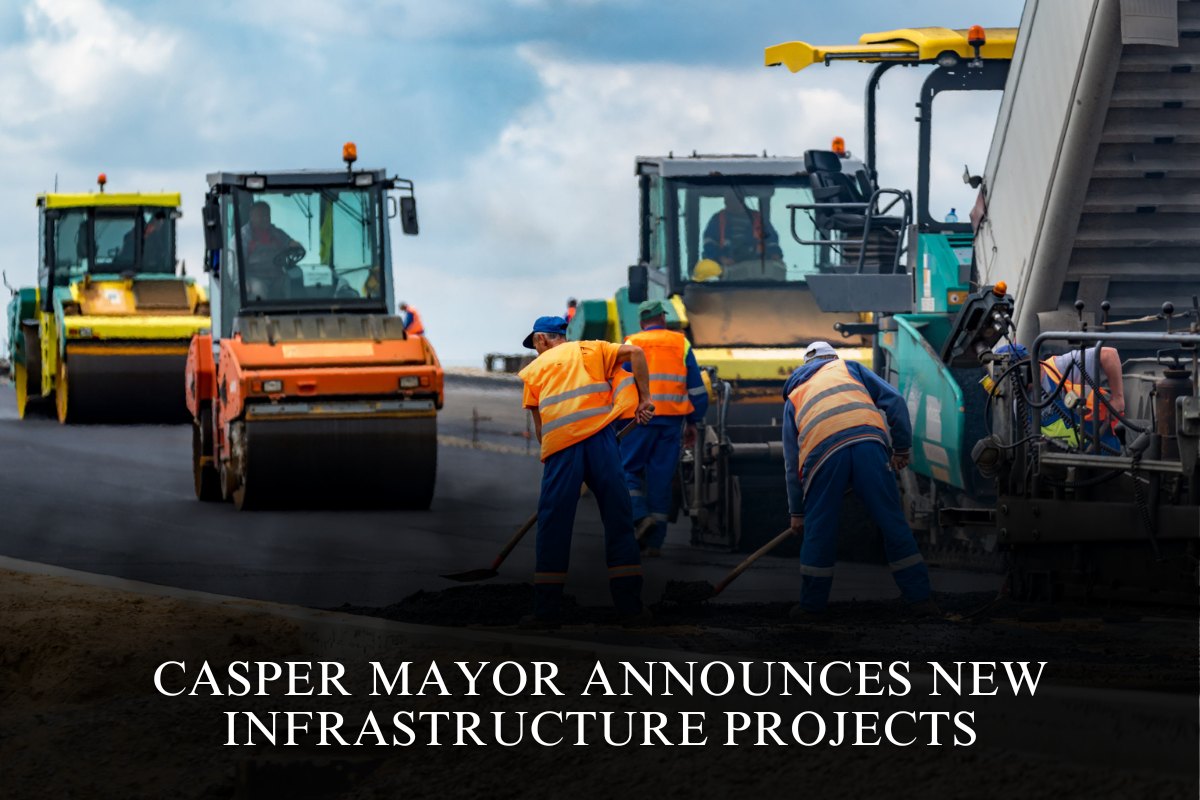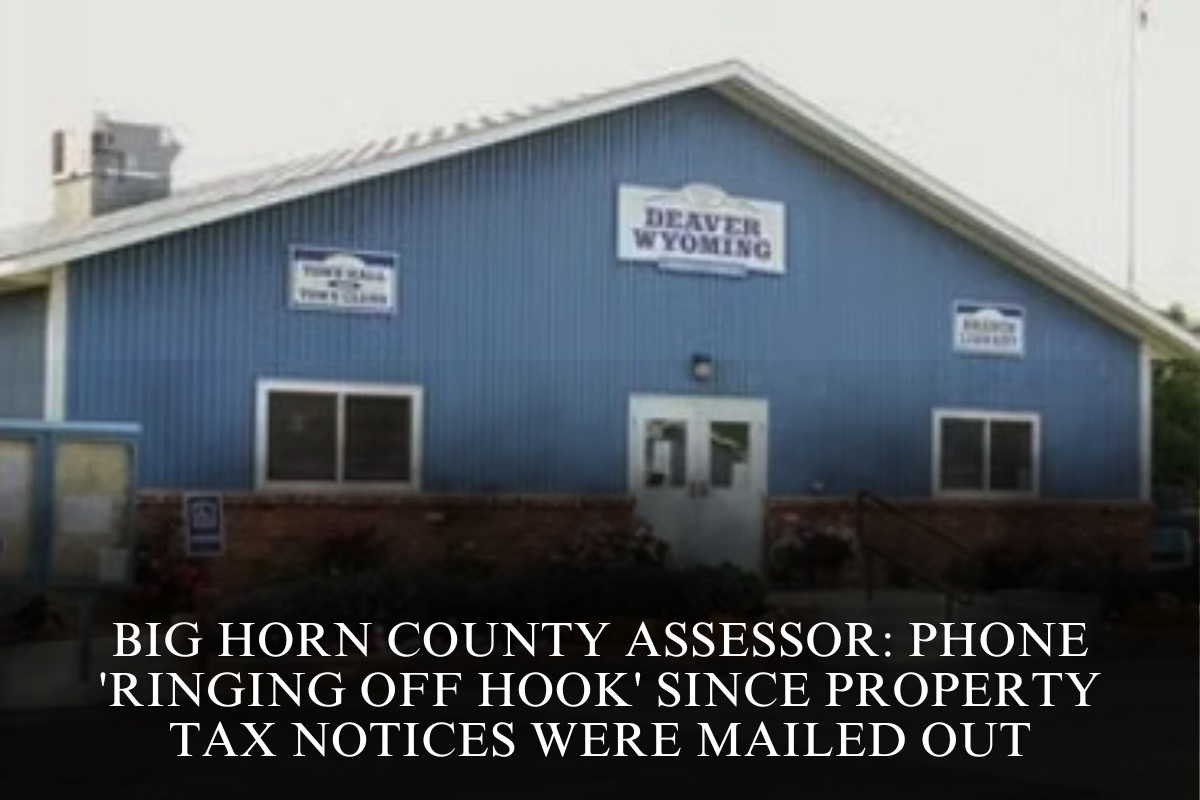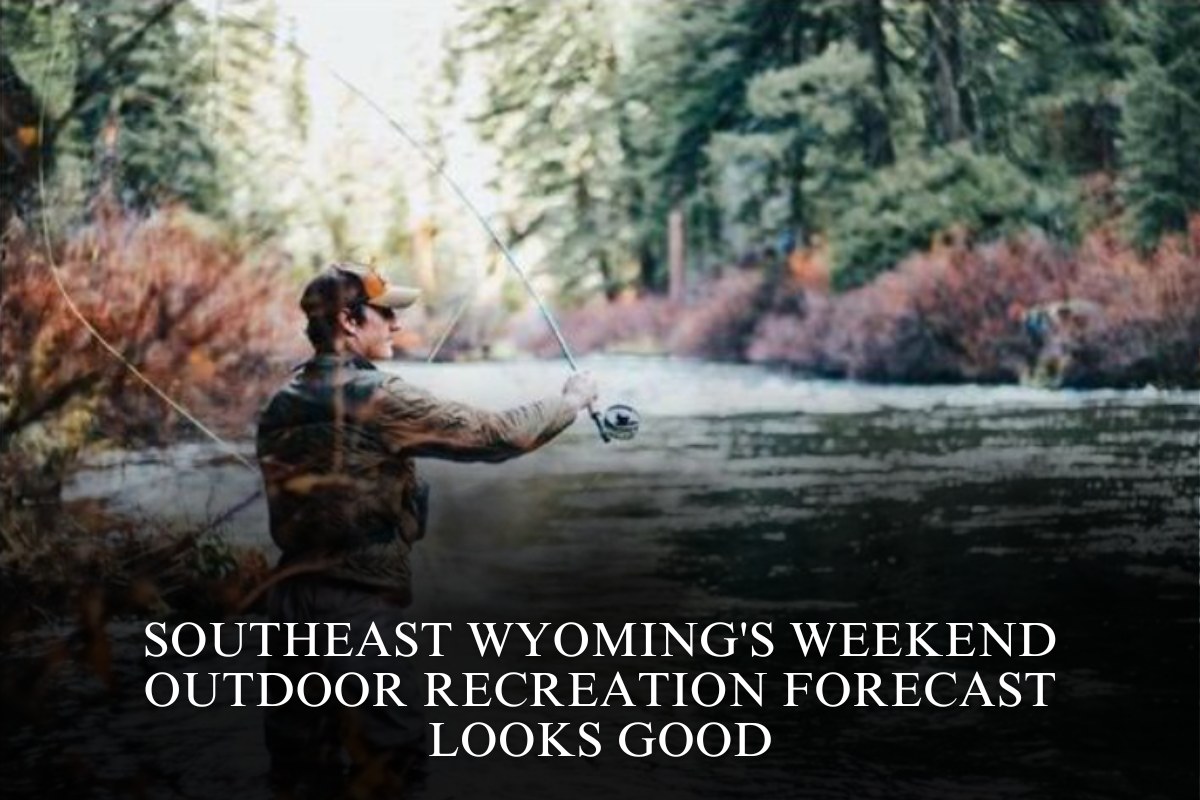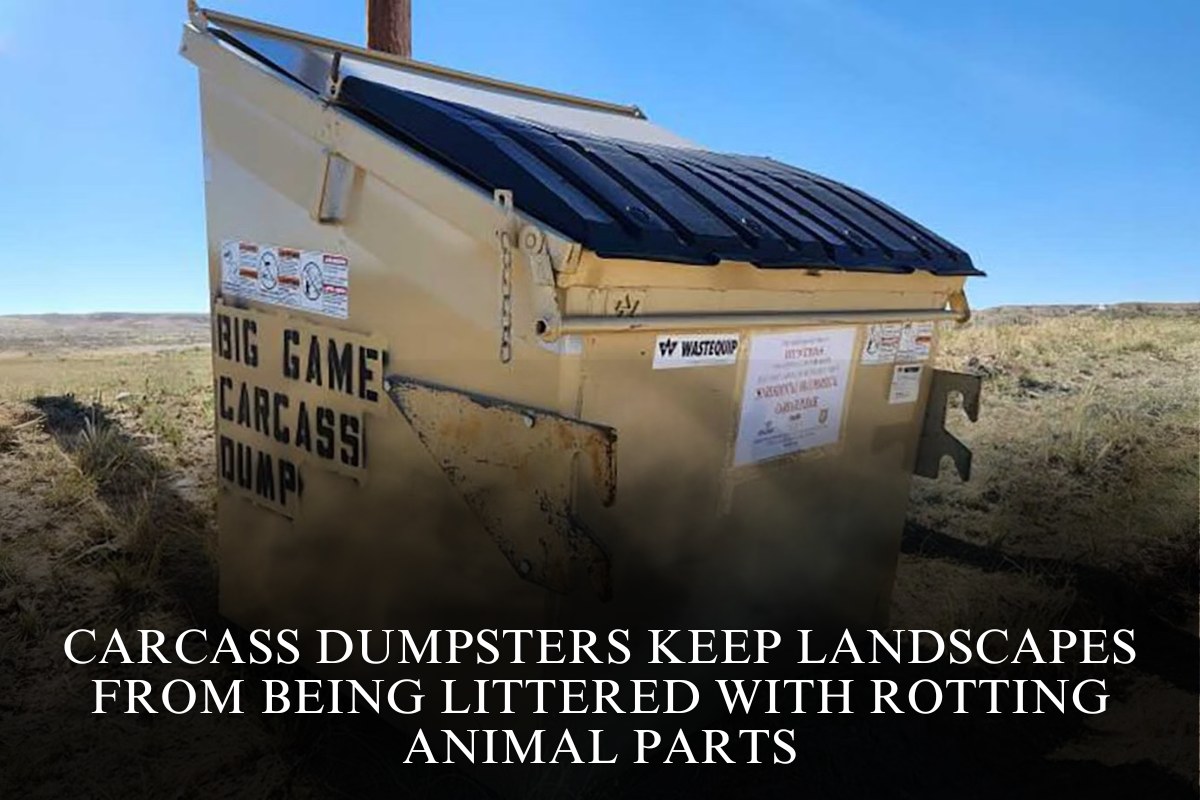CHUGWATER — As Paul Norfleet’s Ford Super Duty truck crunches down the gravel roads near his ranch, he points out all of the manmade landmarks scattered across the landscape.
From his vantage point, he can see cell towers, oil rigs, transmission lines, and decommissioned missile silos. Norfleet can sometimes detect steam from a nearby power plant in the morning.
He tells Cowboy State Daily that he doesn’t mind looking at these structures while delivering a tank of fresh water to his hundreds of sheep. They are simply a part of the rural Wyoming landscape for him.
“It takes a lot for something happening to bother me,” according to him.
That’s why Norfleet was surprised to learn he had gotten involved in a heated debate over Wyoming land use by collaborating with a company to bring a new energy development to a portion of his property.
Norfleet is one of 30 landowners working with NextEra Energy Resources, a Florida-based energy developer, to bring wind turbines and solar panels to eastern Wyoming.
The company is behind the Chugwater Energy Project, which it claims could generate an estimated 600 megawatts of power.
According to data on NextEra’s website, the company plans to build up to 107 wind turbines and solar panels on approximately 47,000 acres in Platte County and 6,100 acres in Goshen County. On-site batteries will store some of the generated power for later use.
According to the company, the region “has some of the nation’s highest quality-rated renewable energy potential.”
If state and local officials approve the project, it will begin in December 2027.
‘More Stuff to Look At’
Norfleet parks his truck in a grassy field where he begins pumping fresh water from the tank coupled to his vehicle. A herd of thirsty sheep rush up to the edge of their enclosure where a basin is filling with water.
As he works, one of Norfleet’s 13 dogs, a muddy fellow named Shady, rushes in for a pet.
With one hand on the dog, Norfleet explains that adding wind turbines and solar panels to his property would not be offensive. It’d just be “adding more stuff to look at.”
“You hate to see things change,” Norfleet said. “People hate what windmills look like, but I didn’t realize there was opposition until all this.”
Norfleet said he has heard from community members who are concerned that the project will become an eyesore. They have also expressed concern that the development could endanger local wildlife.
But, as the owner of hundreds of animals, including sheep, cows, turkeys, horses, and dogs, Norfleet expects to be the first to notice such a threat.
Norfleet occasionally brings his sheep to Colorado, where they graze under solar panels. These structures, he explained, provide shelter for animals and can help some grasses grow more quickly.
When they come across wind turbines, Norfleet’s sheep enjoy the extra shade, he says.
“If there’s anything providing shade in this country, things are going to go behind it,” according to him. “There’s so much land in this country that it’s hard to affect [the animals] that much.”
The Letter Of The Law
Chugwater Mayor Josh Hopkins told Cowboy State Daily that he’s heard conflicting opinions from local residents about the project.
Regardless of their feelings, Chugwater’s town government will have no say over whether the project is approved.
“This project will be 3 miles from our doorstep in the center of town,” Hopkins informed the crowd. “This project will be right on top of our town, but we as a government we get absolutely no say on the permitting of the project.”
County officials will ultimately decide whether or not to approve the project.
Chugwater’s only option, according to Hopkins, is to seek “impact assistance” funds from the state Loan and Investment Board to help the town offset the potential negative effects of its proximity to the development.
“It seems unfair because it’s such a large thing that will be passing through our town that we do or don’t get a say,” Hopkins told the newspaper. “But because of these political boundaries it’s sort of the fact of the matter.”
Platte County Commissioner John Baker, one of the officials in charge of approving the Chugwater development, takes a straightforward approach to the project.
He told Cowboy State Daily over the phone that if the project stays within its legal boundaries, he sees no problem with it.
“This company is going to go through the siting council and Department of Environmental Quality in Cheyenne,” he told me. “Then we’ve already got regulations in the county for wind and solar.”
“Basically, if this company, or any company — it could be dairy, it could be anything — if they come into the county and they pass the planning and zoning regulations, then they follow the letter of the law,” said the commissioner.
While Baker acknowledged that he and his fellow Platte County commissioners wield “a lot more power” over the project approval process than other local government leaders, he sees his role as “just business.”
“As commissioners, all we can do is follow the law,” he explained. “It makes no difference whether we are for or against it. We are neither the good guys nor the bad guys. We are sitting there, looking at the law.”
According to NextEra’s projected timeline, the wind farm will be decommissioned or removed from the land within the next 20 to 30 years.
Baker stated that within this time frame, he must also consider how the project will affect future land usage rights, which he stated has been a top priority for him.
“I won’t be here; I’ll be long gone by then,” Baker said of the project’s possible 30-year lifespan. “Our primary goal is to do what is best for the county’s landowners and residents.
“Because, you know, property rights are very important to me.” They are a big deal. Nobody should be able to tell another person what to do with their property if they follow the law.
A New Truck
Back in the seat of his truck, Norfleet is now driving off to visit his cows. Norfleet said he knows there is community concerns about the development on his land.
Their reactions, he suggested, are likely due to the visible nature of wind turbines compared to other more subtle developments, like oil rigs.
“Some people are just against everything,” he says. “Not everything that draws a fight is negative.”
Some of the backlash, Norfleet suspects, could also be due to highly polarized partisan politics.
The Trump administration has taken staunch opposition to wind and solar energy, departing from the pro-green energy policies of the previous Biden administration.
In his pasture, Norfleet drives past a black cow named Smokey, which he bottle fed from the time it was a calf. He explains the price of beef has risen to a “scary” level, leading some farmers to increase their meat production.
While Norfleet doesn’t want to contribute to over-saturating the market, he said money is sometimes tight around his ranch.
“Farming is so fickle,” he says. “We’re always looking for diversification any way we can get it.”
As a partner in the Chugwater Energy Project, Norfleet will receive regular payments from NextEra. That income, he said, could go toward buying him a new farm truck, which can cost upward of $90,000.
“Or maybe a Camaro,” he muses.
Concerned Community
Others in the area have also been hesitant to support the Chugwater Energy Project.
Torrington Mayor Herb Doby told Cowboy State Daily in June that he remains skeptical of NextEra’s hopeful promises.
“It does bring jobs, and it heats up the economy in a good way and all that,” Doby told the crowd. “But I believe the general consensus here is that that is not our future.
“I am 71 years old, and all I have ever heard is that we are rich in coal, oil, natural gas, and minerals. “What we need to do is add value to that,” Doby explained. “And I can’t think of a better way to add value to what we’re rich in than turning it into electricity.”
State Rep. Scott Smith, R-Lingle, also expressed dissatisfaction with NextEra after attending a public open house event for the project in June.
“They didn’t give any presentation,” Smith told Cowboy State Daily. “They just had seven maps and boards with a few different bullet points saying how this is the greatest thing since sliced bread.
“Those constituents that have talked to me even at the open house the other week were not happy.”
Sara Cassidy, NextEra Communications Director, told Cowboy State Daily that the company is aware of these concerns and is working with community members to address them.
“We realize that any new development project can generate questions from some community members,” she told me in an email. “What we’ve discovered is that the majority of questions come from people who may not fully understand how the energy project works or what it means for their community.”
“When we receive concerns, we do not dismiss them. We listen, engage, and communicate the facts.”
According to Cassidy, NextEra is aware of Wyoming’s long tradition of property rights. The company hopes to keep this in mind throughout the approval process.
“This project is about two things Wyoming has always stood for — respecting private property rights and producing American energy,” said the woman. “The Wyoming Constitution protects landowners’ freedom to choose how to use their land to make a living, which is exactly what is happening here.
“We have the experience to do this right, and we’re committed to being good neighbors throughout the process.”
According to NextEra, the project will generate nearly $1 billion in revenue for the state and 450 construction job opportunities.
It also guarantees that landowners will receive “stable, reliable income” in the form of payments, regardless of how much energy the site eventually produces.
The project also prioritizes the hiring of recent Wyoming graduates to help them launch their professional careers.
All In A Day’s Work
Back at Norfleet’s home, there is still much work to get done.
On a typical day, he will work from sunrise to sunset tending to his animals and the land. Then in the evenings, he’ll cook dinner, maybe watch a movie, and go to bed.
If Norfleet has a free moment during the day, he will occasionally visit his raspberry brambles to find a snack that is better than anything he could buy at a grocery store.
Despite this, he finds the work extremely rewarding.
“It’s a lifestyle, it’s not so much about whether it’s hard work or not, it’s what you enjoy doing,” he replied. “It’s quiet and peaceful, and just seeing the creation of everything in nature is a good way to spend each day.
“Every day is a reward in itself.”
